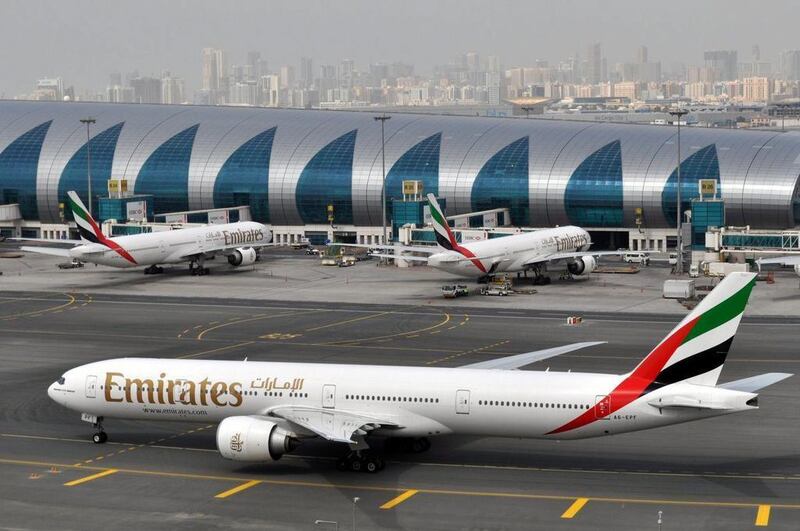Emirates is working to implement increased security measures in response to US demands to reverse a ban on laptops and other electronics on-board its US-bound flights.
The airline said in a statement on Tuesday that it is "working hard in co-ordination with various aviation stakeholders and the local authorities" to put the heightened security measures and protocols in place.
Emirates' Dubai hub has grown into the world's busiest airport for international traffic, in large part thanks to Emirates' expansion. It was one of 10 airports affected by the ban on cabin electronics put in place by the Trump administration in March.
Earlier this week Abu Dhabi International Airport became the first to be exempted from the cabin electronics ban after the airport enhanced security measures.
The hub was the first airport in the world to have been given the green light by the Department of Homeland Security’s Transportation Security Administration since broader security requirements were unveiled last Wednesday by the US.
It requires enhanced screening of passengers and devices at 280 airports globally, impacting 180 airlines.
Also on Tuesday the Saudi state news agency SPA reported that Saudi Arabian Airlines (Saudia) expects the in-cabin ban on laptops and other large electronics on direct flights to the United States to be lifted by July 19.
The airline is working with the country's civil aviation authority, GACA, to implement the new security measures for US-bound flights..
Saudia flies to the United States from airports in Jeddah and Riyadh.
Turkish Airlines said on Monday it expected the ban to be lifted on flights from Turkey on July 5.
In March, the United States banned laptops in cabins on flights to the United States originating at 10 airports in eight countries — Egypt, Morocco, Jordan, the UAE, Saudi Arabia, Kuwait, Qatar and Turkey — to address fears that bombs could be concealed in electronic devices taken on board.






